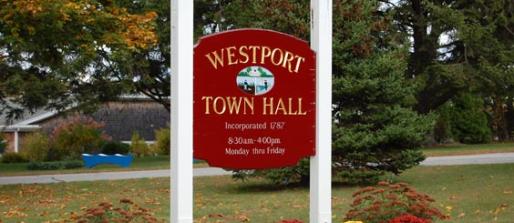Chapter 115 Veterans Benefits
About Massachusetts General Laws (M.G.L.) Chapter 115 Veterans’ Benefits
History of Veterans Benefits | DVS and your local VSO | Ch. 115 Eligibility | Calculator | Benefits | Medical Expenses | Financial Assistance | Recipient Responsibilities
The history of veterans' benefits in Massachusetts
In the 18th century, towns in the Massachusetts Bay Colony provided assistance to their needy veterans of the French and Indian War (1754-1763), fought between France and Great Britain in North America. The Commonwealth of Massachusetts began providing for its veterans immediately following the Revolutionary War. At the start of the Civil War in 1861, the state legislature formalized the assistance provided to veterans by establishing M.G.L. Chapter 115 and the Department of Veterans Services (DVS).
The Department of Veterans Services and your local Veterans' Service Officer
M.G.L. Chapter 115 requires each town and city within the Commonwealth to employ a Veterans' Service Officer (VSO). These town/city employees support the needs of the local veterans within their town/city limits. Larger towns and cities are required to provide a full time VSO, while less populated towns and cities are given the option of having a part time VSO, or joining together with other towns/cities to form a district, which would be serviced by a VSO who would be responsible for serving the multiple towns/cities within the formed district.
Who is eligible to receive M.G.L. Chapter 115 benefits?
Anyone qualifying as a veteran under the M.G.L. Chapter 4, Section 7, clause 43, as amended by the Acts of 2005, Chapter 130, may be eligible for veterans’ benefits from the community in which they reside, provided that they meet the Income and Asset Limits for this needs-based, means-tested program of financial assistance. However, applicants whose income is only slightly above the income limit may be eligible for medical benefits at a “spend down” adjustment amount. Check with your local VSO for the current Income and Asset Limits.
Unlike many states, Massachusetts extends the coverage for veterans’ benefits beyond the veteran to his or her eligible dependents. These eligible dependents may also apply for veterans’ benefits. The surviving spouse of a deceased veteran, provided that the spouse was married to the veteran at the time of his or her death, is considered an eligible dependent. Living spouses, children, and parents might also qualify to receive benefits.
 Veterans and/or their dependents can use the online Mass Vet Benefit Calculator to help determine if they might be eligible for financial assistance through the Chapter 115 program. If you choose to use this calculator, please download or email yourself the document with your answers once you complete the steps. Please note that this calculator is neither an application for benefits nor a guarantee of benefits.
Veterans and/or their dependents can use the online Mass Vet Benefit Calculator to help determine if they might be eligible for financial assistance through the Chapter 115 program. If you choose to use this calculator, please download or email yourself the document with your answers once you complete the steps. Please note that this calculator is neither an application for benefits nor a guarantee of benefits.
Applicants have the option to download and fill out a VS1 document that asks all the demographic information and questions that the VSO will need to complete a basic application. Completing and bringing this form to your VSO will allow for faster processing of your application
To complete an application for Chapter 115 benefits, call the Veterans Service Officer at 508-636-1028 to schedule an appointment. If you completed the Mass Vet Benefit Calculator of the VS1 document, make sure to bring it with you to the appointment or email it to the VSO ahead of time at veterans@westport-ma.gov. Please review the list of paperwork that is required when you apply for benefits.
What kind of benefits are available?
There are several levels of benefits, which are determined by a formula which takes into account a number of factors. Ceilings are set for income based on 200% of the Federal Poverty Level (FPL). Recipients must apply for all available income and other assistance that is available.
 OB/Fuel*/Medical: This is the highest level of benefits and provides financial assistance to recipients to help pay shelter, heating, and medical premiums. These recipients have lower income than other benefit levels.
OB/Fuel*/Medical: This is the highest level of benefits and provides financial assistance to recipients to help pay shelter, heating, and medical premiums. These recipients have lower income than other benefit levels.- Fuel*/Medical: This is the mid-level of benefits and provides financial assistance to recipients to help pay heating and medical premiums. These recipients have income that is too high to qualify for shelter assistance.
* Please note that “fuel” expenses may only be paid to those recipients who pay their own heating expense.
- Medical Only: This is the lowest level of benefits and provides financial assistance to recipients to help pay medical premiums. These recipients have higher income than other benefit levels, while still falling under 200% of the FPL.
- Spend-Down: This level is similar to the medical only level, but does not pay 100% reimbursement of medical premiums as the recipient’s income is above 200% of the FPL, and the benefit amount is adjusted by the dollar amount that exceeds 200% of the FPL.
Medical premiums include Medicare Parts B, C, & D, Medicare supplemental plans, or private health insurance. Reimbursement of vision and dental insurance premiums or late enrollment penalties are not allowed.
Certain recipients who qualify at any of these levels may be eligible for reimbursement of other medical expenses, such as prescription, doctor, hospital, and lab co-pays. Assistance may also be available for dental, hearing aids, eye glasses, and other medical expenses with prior approval from DVS and at a maximum rate allowable by law.
How do I file claims for medical expenses?
One of the most widely used and beneficial aspects of M.G.L. Chapter 115 veterans' benefits program is the filing of claims for reimbursement of medical costs. Most medical costs are reimbursed at 100% of the out-of-pocket expense to the claimant, after all other payers, discounts, deductions, and rebates have been applied (e.g. insurance, assistance programs, etc.). However, certain items such as dental, hearing, and vision care are reimbursed based on amounts set by the Division of Heath Care Finance and Policy (DHCFP) of the Commonwealth of Massachusetts. This benefit is not guaranteed for unemployed/employable veterans.
No matter what the source of the medical cost, when filing medical claims you must provide supporting documentation. The supporting documentation must include certain items, depending on the type of medical cost to be reimbursed.
Medical insurance premiums may be claimed by providing a copy of the paid monthly or quarterly bill, or by providing proof of an auto-debit from a banking account for the premium amount. When providing copies of bills, the bills must include the insured’s name, the coverage period, and the amount of the premium after all other payers, discounts, deductions, and rebates have been applied (e.g. assistance by state or federal programs).
How long can I expect to receive financial assistance?
Recipients of Chapter 115 financial assistance may fall one of into several categories. For instance,
- A recipient who is totally and permanently disabled or retired and collecting Social Security might find themselves in a financial situation whereby their needs dictate that they continue to receive benefits indefinitely.
- A recipient who is not eligible for retirement or is not disabled and receiving SSDI might expect to receive assistance for a brief period of time while they secure a job. These recipients will be expected to seek full time employment and agree to an Employment Plan.
- A recipient who is not eligible for retirement or is not disabled and receiving SSDI, but is temporarily unable to work due to medical condition might expect to receive assistance for a brief period of time until medically cleared and returns to work or is put on an Employment Plan with the expectation of seeking full time employment. A Medical Evaluation form from the treating medical provider must be submitted to the VSO.
What are my responsibilities as a recipient of M.G.L. Chapter 115 veterans’ benefits?
Full disclosure and timely updates for changes in circumstance are key responsibilities. For starters, during the application process you must fully disclose to the VSO the financial information and documentation requested. You must declare income from all sources, and all assets, to include bank accounts, IRAs, Certificates of Deposit, stocks, bonds, mutual funds, whole life insurance that may be converted to cash, available cash on hand, vehicles, boats, RVs, etc. If you generate income from self-employment efforts, even if not on a regular basis, you must report this income when it is generated. You may be required to provide forms such as the IRS 1099 or Schedule C Form 1040 tax claim.
Once enrolled you must report any changes in circumstance to the VSO, to include any changes in the amount received from a reported income source, or any new sources of income. You must report any changes in shelter expenses. This includes changes in rent, mortgage, fire insurance, homeowner’s insurance, or property taxes that are charged to you; or changes in your share of such expense if you begin or stop sharing this cost with another. You must report increases or decreases in medical insurance premiums or other health care costs, such as life alert systems. These changes must be reported within one month from the change occurring.
When eligible, you must seek alternate sources of income and benefits such as VA Health Care, VA Compensation, VA Pension, Social Security Disability Income, Supplemental Security Income, or benefits from M.G.L. Chapter 118 such as MassHealth, Mass Health Buy-In, and Prescription Advantage.
The bottom line is to keep the VSO in the know. The VSO can’t help you with things he or she doesn’t know about. Although most recipients do not intentionally attempt to defraud the community and state, failure to disclose information about assets and/or income, or changes in reimbursed expenses can lead to benefits being discontinued, and possible action to recover benefits already paid.
 Download a PDF of a Chapter 115 informational flyer.
Download a PDF of a Chapter 115 informational flyer.
Questions for any topic not covered herein should be directed to your VSO.







